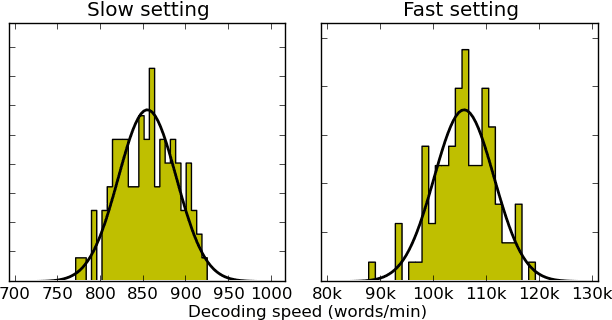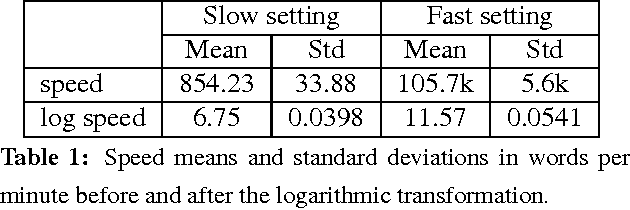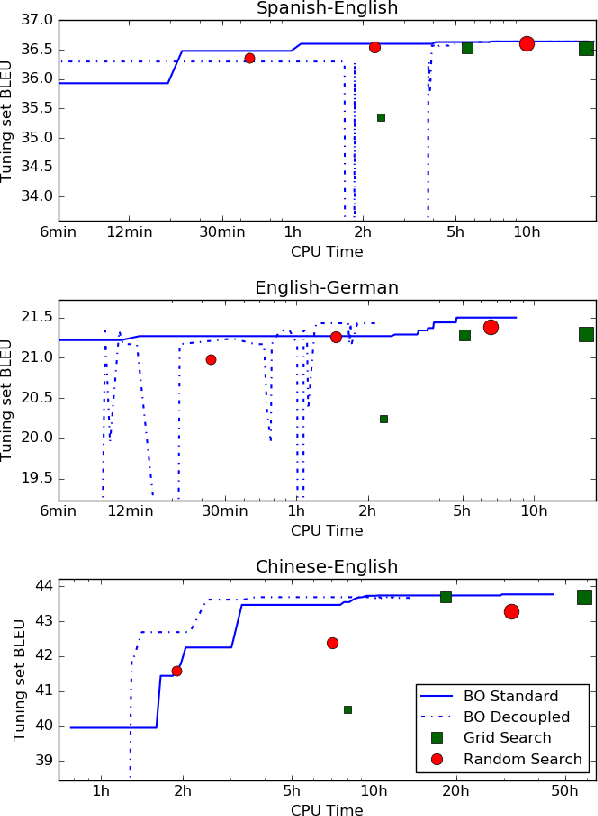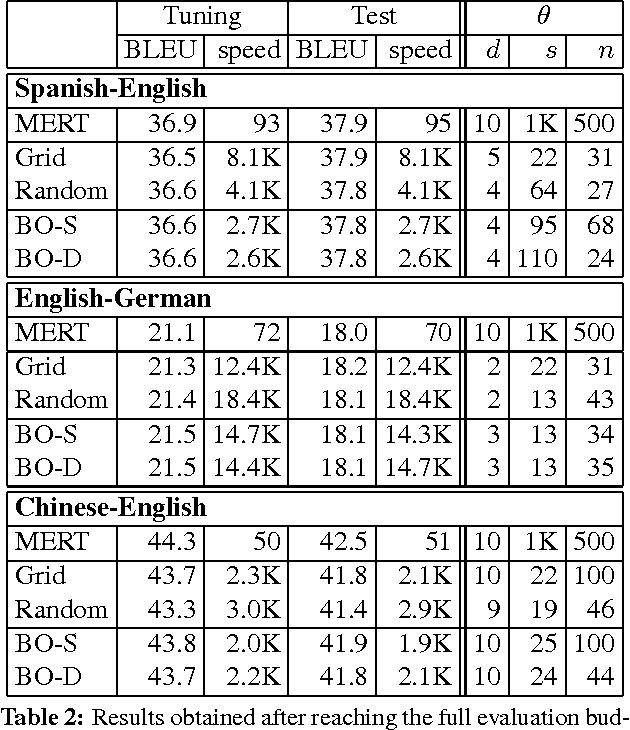Gonzalo Iglesias
Neural Machine Translation Decoding with Terminology Constraints
May 09, 2018



Abstract:Despite the impressive quality improvements yielded by neural machine translation (NMT) systems, controlling their translation output to adhere to user-provided terminology constraints remains an open problem. We describe our approach to constrained neural decoding based on finite-state machines and multi-stack decoding which supports target-side constraints as well as constraints with corresponding aligned input text spans. We demonstrate the performance of our framework on multiple translation tasks and motivate the need for constrained decoding with attentions as a means of reducing misplacement and duplication when translating user constraints.
Accelerating NMT Batched Beam Decoding with LMBR Posteriors for Deployment
Apr 30, 2018



Abstract:We describe a batched beam decoding algorithm for NMT with LMBR n-gram posteriors, showing that LMBR techniques still yield gains on top of the best recently reported results with Transformers. We also discuss acceleration strategies for deployment, and the effect of the beam size and batching on memory and speed.
Why not be Versatile? Applications of the SGNMT Decoder for Machine Translation
Mar 20, 2018



Abstract:SGNMT is a decoding platform for machine translation which allows paring various modern neural models of translation with different kinds of constraints and symbolic models. In this paper, we describe three use cases in which SGNMT is currently playing an active role: (1) teaching as SGNMT is being used for course work and student theses in the MPhil in Machine Learning, Speech and Language Technology at the University of Cambridge, (2) research as most of the research work of the Cambridge MT group is based on SGNMT, and (3) technology transfer as we show how SGNMT is helping to transfer research findings from the laboratory to the industry, eg. into a product of SDL plc.
Speed-Constrained Tuning for Statistical Machine Translation Using Bayesian Optimization
Apr 18, 2016



Abstract:We address the problem of automatically finding the parameters of a statistical machine translation system that maximize BLEU scores while ensuring that decoding speed exceeds a minimum value. We propose the use of Bayesian Optimization to efficiently tune the speed-related decoding parameters by easily incorporating speed as a noisy constraint function. The obtained parameter values are guaranteed to satisfy the speed constraint with an associated confidence margin. Across three language pairs and two speed constraint values, we report overall optimization time reduction compared to grid and random search. We also show that Bayesian Optimization can decouple speed and BLEU measurements, resulting in a further reduction of overall optimization time as speed is measured over a small subset of sentences.
 Add to Chrome
Add to Chrome Add to Firefox
Add to Firefox Add to Edge
Add to Edge